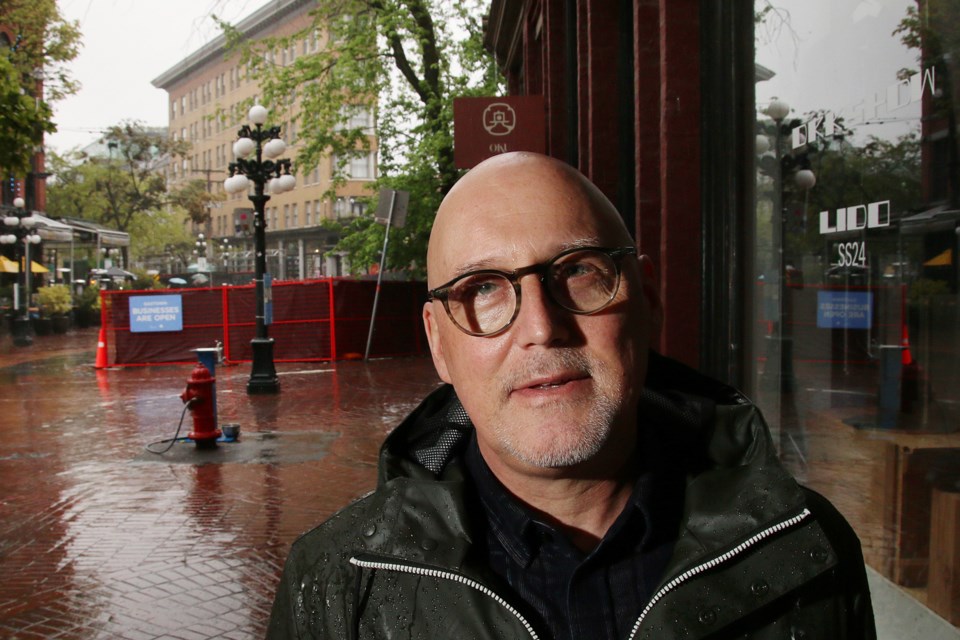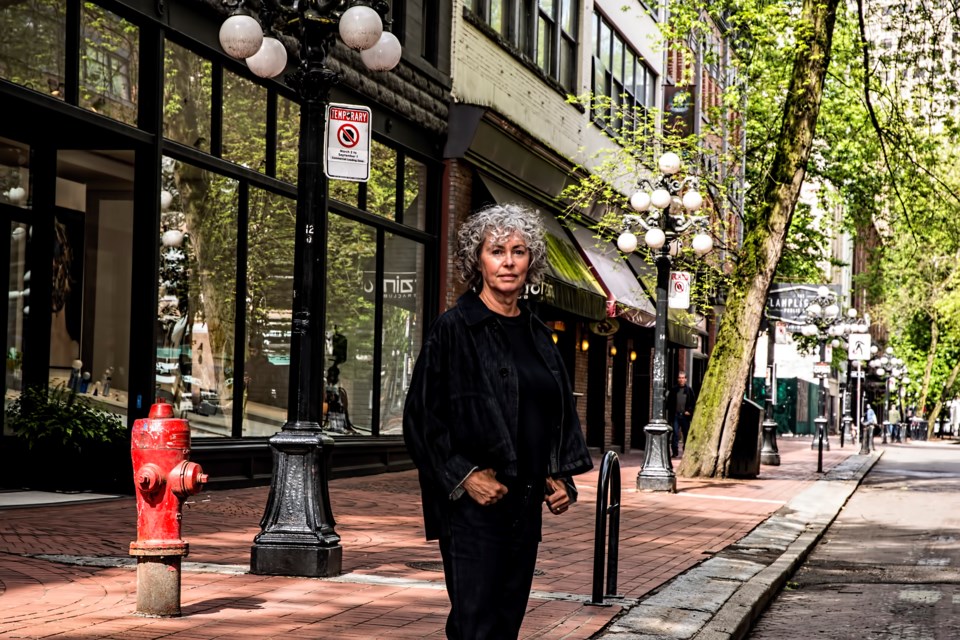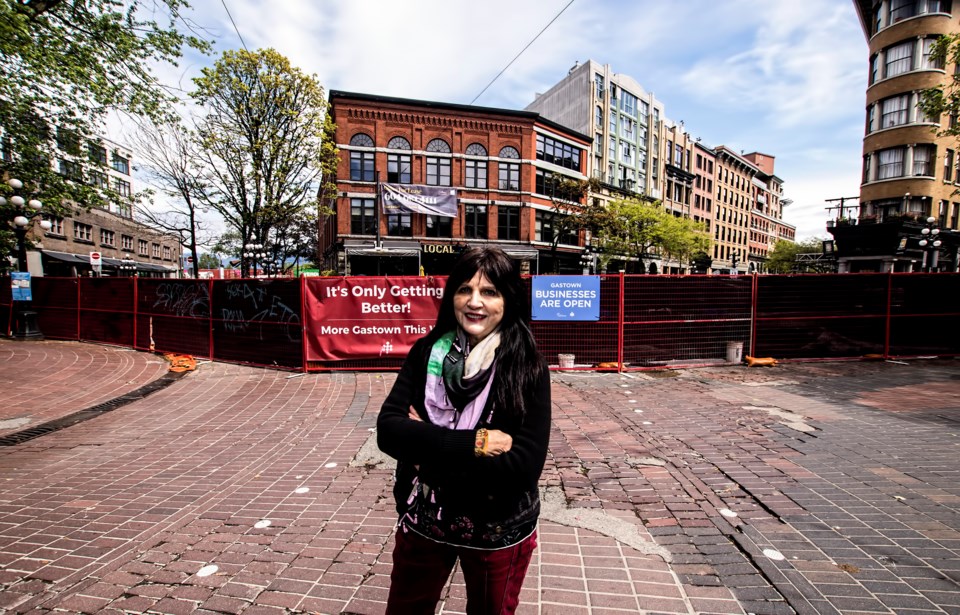Gastown business owners and their representatives are alarmed at how much City of Vancouver changes to traffic patterns in the area have reduced retail and hospitality sales during street reconstruction.
If this continues, the Gastown Business Improvement Society (GBIS) says it may ask the city to curb a planned pilot project to make parts of the neighbourhood pedestrian-only in July and August, executive director Walley Wargolet told BIV.
“We are going to be measuring this, and if the impact, as currently seen, continues during the pilot, we would ask that the pilot be stopped immediately and that the street be reopened,” he said.
BIV asked Vancouver Coun. Sarah Kirby Yung, who moved the motion last year to create the pedestrianized-street pilot project, how she would react if the GBIS asked the city to stop the initiative.
“We’ll cross that bridge when we come to it,” she said.
Wargolet said his association has researched pedestrian-only experiments in other cities and found many have not worked out.
“We think all retail [in Gastown] could potentially be hurt by this,” Wargolet said.
His association surveyed Gastown businesses and found “a lot of them have reported that their revenues are down anywhere between 20 per cent and 50 per cent” since the start of March, when construction on street improvements and new brick laying started, Wargolet said.

Inform Interiors’ owner Nancy Bendtsen told BIV her revenue is down by about 20 per cent. So did Angel Vancouver co-owner Jackie Haliburton. Wooden Table Hospitality president Sean Davis, who operates the restaurant Gringo, similarly cited a 20-per-cent year-over-year sales decline for April and May.
Others, such as Black Frog Eatery principal Nemo Thalhammer, said their businesses have not been impacted much. Thalhammer’s business, however, has been helped by the Edmonton Oilers’ run to the Stanley Cup finals, given that his pub is known as the home for Oilers’ fans on game nights.
One owner of a larger business in the area would only voice concerns to BIV off the record, saying that he did not want to alienate customers who like the idea of pedestrianized streets.
Wargolet valued the decline in business transactions at Gastown businesses at about $500,000 per week.
Given four months of construction-induced road closures, that translates into about $8 million in lost sales. If the closures continue through a separate two-month pedestrianized-street pilot project in July and August, and business continues to be down by $500,000 per week, the hit to the neighbourhood would be another $4 million in spending, according to Wargolet’s numbers.
Kirby Yung told BIV that the GBIS and area businesses asked to have area infrastructure improved.
“The streets were decaying,” she said.
“They felt that the neighbourhood was degrading and business was suffering because of that, so the work happening now is being done because the community asked for it.”
Kirby Yung said it makes sense to conduct the pilot project immediately after the construction because the community will have already adjusted to new traffic patterns.
Wargolet, however, said that he asked the city to postpone the pilot project until next year so that traffic disruption in Gastown would not span six consecutive months this year.
Bendtsen told BIV that she would have supported the pilot project if it were just on weekends, but that she believes running it on weekdays will lead to empty streets.
“When you are regularly cleaning up human feces off the sidewalk, I’m sorry, it’s just a bad situation,” she said.
Kirby Yung said keeping areas pedestrian-only throughout the weeks will reduce disruption and enable street furniture to be more permanent.

No reprieve when construction ends
Road paving in the area is set to be complete by mid-to-late June. Roads will remain closed to vehicles, however, as the city plans to bring in tables, chairs and benches for its pedestrian pilot project along a one-block strip of Water Street, between Richards and Cambie streets.
A separate pedestrian-only area in July and August is slated to be around Maple Tree Square, where Alexander, Powell, Water and Carrall streets meet.
Two blocks on Water Street between Cambie Street and Maple Tree Square are to be what the city calls “car light” blocks, where only local traffic is allowed.
“Most of us are against the pilot project but the city didn’t listen to us,” said Jackie Haliburton, who co-owns the clothing store Angel Vancouver at 2 Powell Street, just east of Maple Tree Square.
Haliburton told BIV that she contacted the City of Vancouver many times through its 3-1-1 system, but that each time she created a complaint file, the city would close it days later without any city staff communicating with her.
That only changed recently, when a staffer phoned her back, she said.
“Most people can’t survive having sales down 20 per cent, and still run the business,” she said.
Haliburton acknowledged that the city has posted signs in western Gastown saying that area businesses are open. No signs were posted in eastern Gastown, she said.
This is important because many of the road closures are on the eastern side of the neighbourhood, near Main Street.
Alexander Street east of Main Street essentially becomes a cul-de-sac near Maple Tree Square, where vehicle traffic can go no further west. The only way to find the scarce parking on Powell Street is to first travel west on Alexander Street from Main Street, and then to turn south into an alley that gets to Powell Street, Haliburton said.
Vehicles east of Main Street on Powell Street are no longer able to continue on Powell Street west of Main Street.
That restriction applies to buses, and it means that the No. 50 bus no longer travels along Powell Street to Water Street.
“People have to walk over to Hastings Street, or tourists get off at Hastings Street, and you know what it’s like there,” Haliburton said. “It’s the worst part of Vancouver. It’s dangerous. It’s scary. It’s dirty. That’s where the bus is. People are really being restricted in their movements,” she said, adding that she worries the new street furniture being installed in Gastown will be used for beds and shelter.
Funding flows into Gastown
Despite the negative consequences of the ongoing road closures, business will likely benefit from the result—and the $10 million earmarked by the city to improve the neighbourhood.
Half of those funds is to improve infrastructure, such as roads and sidewalks, Wargolet said.
About $1.5 million is for the pilot project this summer, he added. The remaining $3.5 million is to be spent on bigger-picture planning and consulting, and what Wargolet described as the “game plan” for the future of the neighbourhood.
To encourage people to come to Gastown during the construction, Wargolet’s association pumped $15,000 into an initiative to provide free parking at an EasyPark lot at 151 West Cordova Street.
All drivers were entitled to three hours of free parking per week.
Donations from the film industry kept the limited free parking initiative going through April, and recently, the city provided the GBIS with $20,000 to keep the program going.
One program set to launch this week involves the GBIS buying $1,500 worth of single-fare compass cards from TransLink and giving the passes to various businesses for staff to give to customers. The amount spent on this program may rise, Wargolet said.
“We’re going to name certain retailers or restaurants that people can go and get a free pass so they can get back home,” he added. “We’re a multi-modal neighbourhood so however people are getting here, we’re trying to help them cover their costs.”
Retailers’ names are slated to be on the GBIS website.
Other money set to flow into Gastown during July and August comes in the form of waived fees for businesses to set up temporary patios or retail shelving in the street.
A city report tallying waived fees for curbside and large patios, small patios and merchandise displays estimated a $24,315 saving for businesses.
A new free "open streets permit" will enable some specific musicians to play instruments without having to pay the traditional busking-permit fees.
Haliburton, however, said she is unsure that she will take the city up on its offer to allow her to set up an outside kiosk to sell her clothing in the street for free.
“The only way I could put something outside is if I hire another person,” said Haliburton who runs her business by herself, with one partner and no employees.
“You can’t just put your stuff out there. Nothing lasts more than a minute and a half outside in Gastown. It will be gone.”




